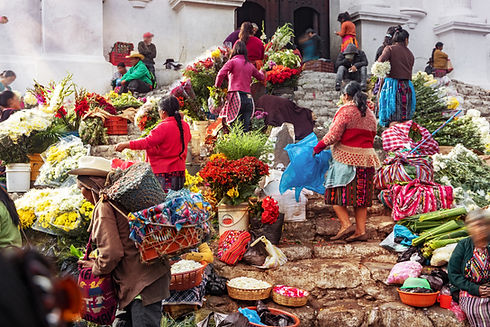OUR RESEARCH
This UKRI-funded project challenges existing paradigms in the field of development interventions and how they are measured and evaluated. It has generated out of research into those who have taken up and laid down arms in war and organized violence, but deals with all classes of projects across the global development spectrum It draws from major theoretical strands in anthropology and the organizational sciences and integrates thinking from the fields of peacebuilding, security studies, and feminist studies to interrogate existing approaches to “community stabilization” in difficult and sometimes violent contexts.
First, we examine interpersonal trust among violence-affected individuals in communities in which conflict-affected actors from all sides live together. Many organized attempts to increase security in these settings have worked towards social changes that require trust (e.g., reconciliation, respectful coexistence) without explicitly addressing the phenomenon. Trust constitutes the necessary foundation for all social, political, and economic life. As such, it remains at the forefront of thinking for this multi-sited ethnography among former members of non-state armed groups in Somalia, Sudan, Libya, Colombia, Mexico, and El Salvador, and military veterans in the United States.
Second, this project moves measurement and evaluation of policy and programming in this area to the beginning of the development process rather than at the end, where such concerns are often tacked on as an afterthought to satisfy current and potential future donors. We have long known that people behave differently according to how they are measured. It is thus no surprise that those implicated in development interventions adjust their participation according to how that participation is being evaluated. In part as a result of these adjustments, program assessments are not capturing the phenomena that they intend to. Yet, at the same time, the desired phenomena – e.g., reconciliation, social repair – do occur; they are simply not captured by extant methods. Trust after Betrayal works to resolve that dissonance.

OUR METHOD
Trust After Betrayal is a comparative project that draws from a wide range of disciplines, while remaining firmly rooted in ethnographic sensibilities. The Principal Investigator is a political anthropologist with additional formal training in finance and organizational studies. With this in mind, the organizations included in this study span all sectors and stages in their life cycle. Sites range from a small grassroots collective in rural Colombia to international development programs in Somalia, and a fishermen’s cooperative in Mexico to specialized court houses for military veterans in the United States. Other collaborating organizations work out of the religious, NGO, public, and private philanthropic sectors. Furthermore, the methodological premise of the work is that complex social change requires a suite of methodological approaches in order to understand and engage in a dialogue with those change efforts and agents. With this in mind, though ethnography constitutes the bedrock of our research, we regularly use mixed and participatory methods, including community surveys, field experiments, semi-structured and life history interviews, multi-media data sources, and archival research. The multi-national comparative study design is grounded in the belief that contextual nuance challenges the generalizability of findings; in doing so, it also strengthens those conclusions which may be used to inform thinking in multiple settings.
